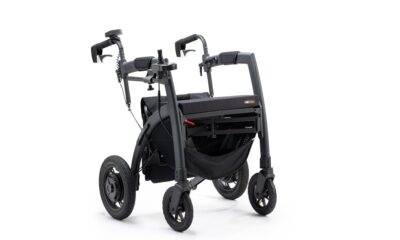Health
The Best Times to Make Changes to Your Medicare Plan

Medicare is a valuable health insurance program for seniors, but choosing the right plan can be tricky. Your needs may change over time, and you may want to adjust your coverage. Understanding the best times to make changes to your Medicare plan can help you get the most out of your benefits.
Annual Open Enrollment Period (AEP)
The Annual Open Enrollment Period, typically from October 15 to December 7, is one of the best times to make changes to your Medicare plan. During this period, you can switch between Original Medicare and Medicare Advantage (Part C) or change your Medicare Advantage plan. You can also update your prescription drug coverage (Part D) during this time. Any changes you make during AEP will take effect on January 1 of the following year.
Medicare Advantage Open Enrollment Period
The Medicare Advantage Open Enrollment Period runs from January 1 to March 31 each year. During this period, you can make changes if you’re already enrolled in a Medicare Advantage plan. You can switch to a different Medicare Advantage plan or return to Original Medicare. If you choose to return to Original Medicare, you can also sign up for a standalone Part D prescription drug plan.
Special Enrollment Periods (SEPs)
Special Enrollment Periods allow you to make changes to your Medicare plan outside of the usual enrollment windows if certain life events occur. For example, if you move to a new location, lose other health coverage, or experience other significant life changes, you may qualify for an SEP. These periods vary in length and specific rules, so it’s important to check your eligibility.
When You First Become Eligible for Medicare
When you first become eligible for Medicare, usually at age 65, you have a 7-month Initial Enrollment Period to sign up for Medicare. During this time, you can choose between Original Medicare, Medicare Advantage, and other options. It’s important to sign up during this period to avoid late enrollment penalties and delays in coverage.
If Your Health or Financial Situation Changes
Changes in your health or financial situation may prompt you to make adjustments to your Medicare plan. For example, if your health condition changes, you may need different coverage to meet your medical needs. Similarly, if your financial situation changes, you might qualify for additional assistance programs like Extra Help or Medicaid.
Knowing when to make changes to your Medicare plan can help ensure you have the right coverage for your needs. Keep track of key enrollment periods and consider your health, financial situation, and coverage needs when deciding to make adjustments.
-

 Tech8 months ago
Tech8 months agoThe Best Lightweight Laptops for Travelers
-

 Tech8 months ago
Tech8 months agoHow to Extend the Lifespan of Your Electronics
-

 Finance8 months ago
Finance8 months agoTop Tips to Avoid Underinsurance for Your Home
-

 Senior8 months ago
Senior8 months agoTop Accessories to Enhance Your Electric Folding Wheelchair Experience
-

 Finance8 months ago
Finance8 months agoThe Best Business Credit Cards for Entrepreneurs
-

 Home & Lifestyle8 months ago
Home & Lifestyle8 months agoHow to Create a Spa-Like Bathroom at Home
-

 Home & Lifestyle8 months ago
Home & Lifestyle8 months agoSmall Kitchen Appliances That Make Cooking Easier
-

 Home & Lifestyle8 months ago
Home & Lifestyle8 months agoIdeas to Refresh Your Home All Year Round


